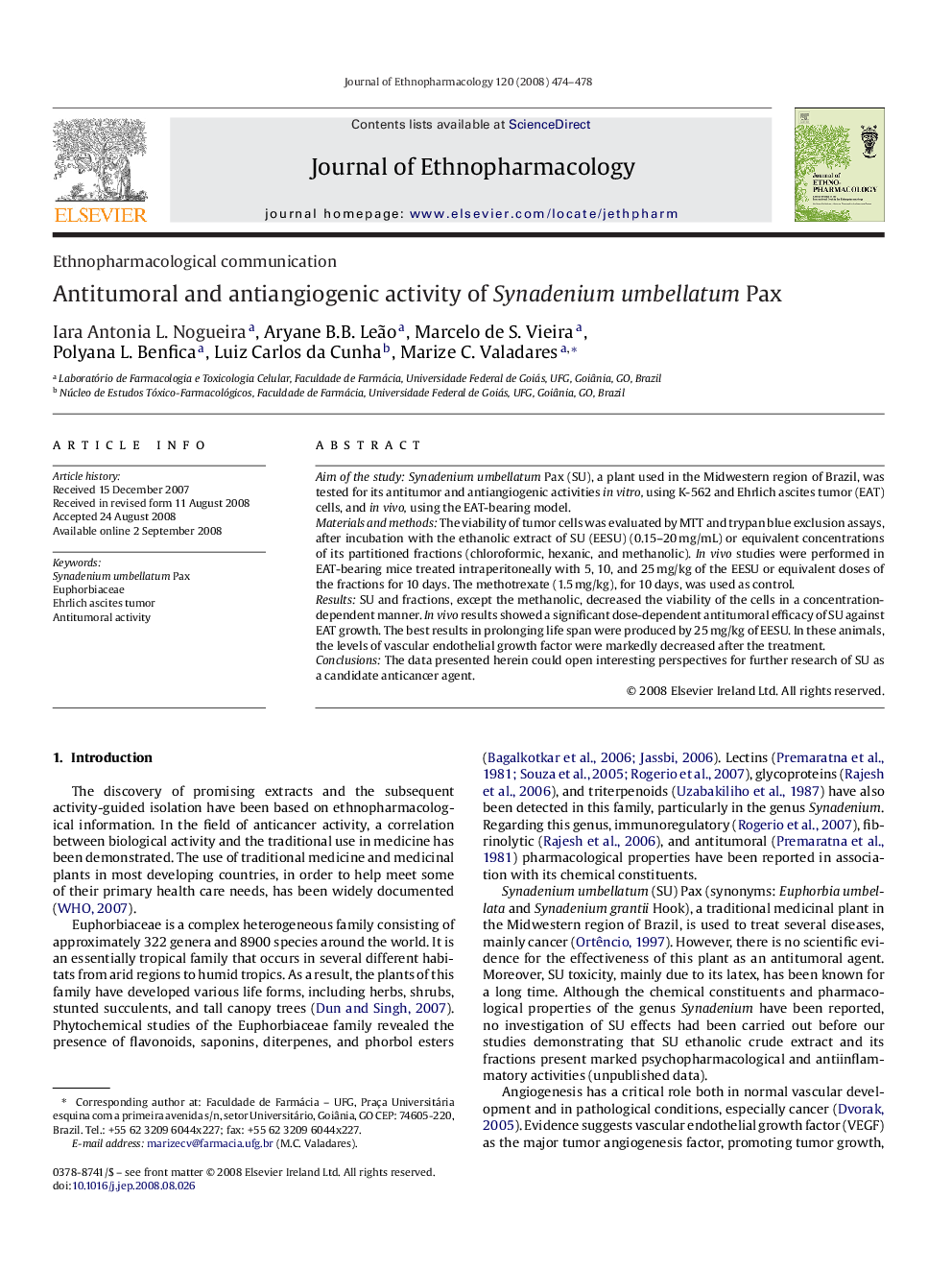| Article ID | Journal | Published Year | Pages | File Type |
|---|---|---|---|---|
| 2546323 | Journal of Ethnopharmacology | 2008 | 5 Pages |
Aim of the studySynadenium umbellatum Pax (SU), a plant used in the Midwestern region of Brazil, was tested for its antitumor and antiangiogenic activities in vitro, using K-562 and Ehrlich ascites tumor (EAT) cells, and in vivo, using the EAT-bearing model.Materials and methodsThe viability of tumor cells was evaluated by MTT and trypan blue exclusion assays, after incubation with the ethanolic extract of SU (EESU) (0.15–20 mg/mL) or equivalent concentrations of its partitioned fractions (chloroformic, hexanic, and methanolic). In vivo studies were performed in EAT-bearing mice treated intraperitoneally with 5, 10, and 25 mg/kg of the EESU or equivalent doses of the fractions for 10 days. The methotrexate (1.5 mg/kg), for 10 days, was used as control.ResultsSU and fractions, except the methanolic, decreased the viability of the cells in a concentration-dependent manner. In vivo results showed a significant dose-dependent antitumoral efficacy of SU against EAT growth. The best results in prolonging life span were produced by 25 mg/kg of EESU. In these animals, the levels of vascular endothelial growth factor were markedly decreased after the treatment.ConclusionsThe data presented herein could open interesting perspectives for further research of SU as a candidate anticancer agent.
